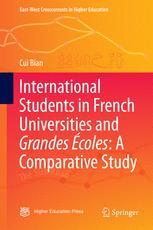

Most ebook files are in PDF format, so you can easily read them using various software such as Foxit Reader or directly on the Google Chrome browser.
Some ebook files are released by publishers in other formats such as .awz, .mobi, .epub, .fb2, etc. You may need to install specific software to read these formats on mobile/PC, such as Calibre.
Please read the tutorial at this link: https://ebookbell.com/faq
We offer FREE conversion to the popular formats you request; however, this may take some time. Therefore, right after payment, please email us, and we will try to provide the service as quickly as possible.
For some exceptional file formats or broken links (if any), please refrain from opening any disputes. Instead, email us first, and we will try to assist within a maximum of 6 hours.
EbookBell Team

4.1
100 reviewsThe book mainly investigates the challenges that confront France’s unique dual system of higher education in facing internationalization and the recruitment of international students. This book focuses on the development of the institutional strategies in two groups of higher education institutions: University and Grande École in responding to the opportunities and stresses of both Europe’s Bologna process and globalization.
The research data presents in this book was collected from four local institutions, two Grandes Écoles and two universities, one of each focusing on the social sciences and the other on natural sciences and technology. Interviews with major stakeholders in the institutions, including personnel from international offices, faculty/researchers and international students were adopted as principal methods for data collection. The thematic organization of the findings in each chapter covers views from three levels of stakeholders’ and interprets the results within theoretical frames, such as institutional theories, world-system theory, international academic relationship theory and branding theory. Readers will find this book both practical and innovative in four key ways. Firstly, in knowledge diffusion, revealing the mysterious veil of the unique French dual higher education system. Secondly, in new knowledge production, exploring a new subject of research and filling the blanks from previous studies of the two groups of institutions. Thirdly, in presenting new interesting sights into current reforms in Frances’s higher education and how far principles of path dependency will ensure strong continuities with the past as against a tendency to homogenization in response to pressures from Europeanization and global ranking systems. Finally, in exploring the dimension of interculturality and the interplay between researcher’s identity and research process.